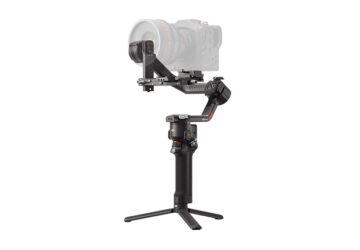Proprietary trading, commonly known as prop trading, refers to using a firm’s funds to trade instruments by relying on individual investors’ money. These prop traders employ strategies to capitalize on short-term market movements and generate profits. However, for aspiring prop traders, it is essential to grasp fundamental principles. This article will delve into the knowledge and skills that every prop trader should possess.
Understanding Market Behavior
Before venturing into prop trading, traders must understand market dynamics and how different factors influence price movements. Analyzing indicators, geopolitical events, and significant news releases can provide insights for trade decision-making. Accomplished prop traders consistently monitor these variables and comprehend their impact on various trading instruments.
Effective Risk Management Techniques
Risk management is vital in any trading strategy and holds even greater significance in a proprietary trading firm. One key concept is position sizing—determining the amount to invest in each trade based on risk tolerance and probability calculations. Prop traders must adhere to risk limits defined by their associated firms while balancing generating profits and mitigating losses.
Developing Proficiency in Technical Analysis
While fundamental analysis is essential for understanding the market, technical analysis also plays a critical role in achieving success as a prop trader. Technical analysis involves studying price charts and patterns to identify future trends or reversals. Traders can make decisions when entering or exiting positions using trendlines, support, resistance levels, moving averages, oscillators, and indicators like RSI or MACD.
Perfect Your Trading Strategy
A defined trading strategy is crucial as it provides guidance and helps minimize emotional decision-making. Prop traders often choose strategies like scalping (taking advantage of lived trades during day volatility), momentum trading (based on sustained price movements), or mean reversion (betting on prices returning to their average value). It’s essential for trading strategies to align with a trader’s personality, risk tolerance, and available time.
Stock Market Simulators
For aspiring prop traders, it’s wise to practice and refine their skills using stock market simulators or demo accounts. These platforms allow users to execute trades with money in real-time market conditions without risking capital. Simulators and practice accounts offer knowledge in understanding how markets function, experimenting with strategies, and refining trading techniques before stepping into live trading with real funds.
Incorporating Automation Tools
Technology is vital in facilitating profitable proprietary trading in today’s fast-paced trading environment. Prop traders can utilize automation tools such as trading systems or expert advisors to generate trade signals based on predefined rules. These tools can automatically execute trades without intervention, ensuring responses to market movements. However, it is vital to backtest and validate any automated strategies before implementing them.
Staying Well Informed through Continuous Learning
The financial markets constantly evolve, making continuous learning indispensable for prop traders’ long-term success. Engaging in resources is essential; reading finance-related books and articles from reputable sources, attending webinars or seminars, and subscribing to newsletters or industry publications—these activities aid traders in staying updated with the latest market trends and pertinent economic news that may impact their trading decisions.
Seeking Guidance from Mentors
Experienced prop traders recognize the significance of seeking guidance from mentors who have succeeded. Having a mentor can offer insights into the challenges of developing a strategy, effectively managing risk, and maintaining discipline when making trading decisions. A skilled mentor, at their craft, can significantly reduce the time it takes to learn by sharing their experiences and guiding mentees away from mistakes.
In Conclusion
Becoming a prop trader takes more than simply understanding the markets or having access to a large amount of capital. It involves mastering principles such as market dynamics, risk management techniques, technical analysis skills, developing and implementing trading strategies practicing in demo accounts utilizing automation tools, continuous learning, and seeking guidance from mentors. These elements are all essential on the journey towards prop trading success. So embrace these fundamentals and set forth on your path to success in prop trading.








